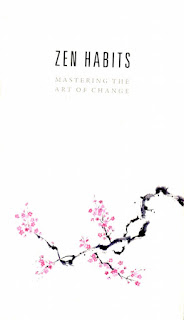Philip Stratford "Translation as Creation" in Figures in a Ground: Canadian Essays on Modern Literature Collected in Honor of Sheila Watson edited by Diane Bessai and David Jackel.
It is preferable to struggle to find the right word in your own mind and in your own vocabulary than to rely on the push-button response of thesaurus or dictionary. It may even be preferable, since dictionaries are sometimes indispensible [sic], to use a modest rather than a too extensive one, just to insure a close and personal engagement in the search.
When I first read this, I took "extensive" as "expensive". And my big two volume OED (with the magnifying glass) informed me that "indispensible" is an obsolete form for
indispensable and which here serves as an indice of the Canadian pronunciation. BTW the Oxford English Dictionary in my possession was purchased at a cut rate price since "the definitive record of the English language" has migrated to a subscription service online and many persons have been offloading their old paper behemoths.
The point that Stratford is making is that a poverty of means induces a valuable outcome when mediated by skill (in internalizing the resources of target and source languages). The other point that he is making is that there is a personal stake in the
enjeu.
And so for day 1912
08.03.2012






